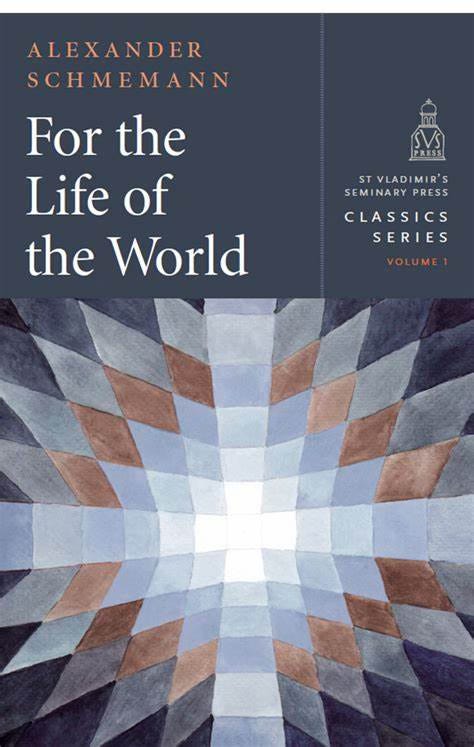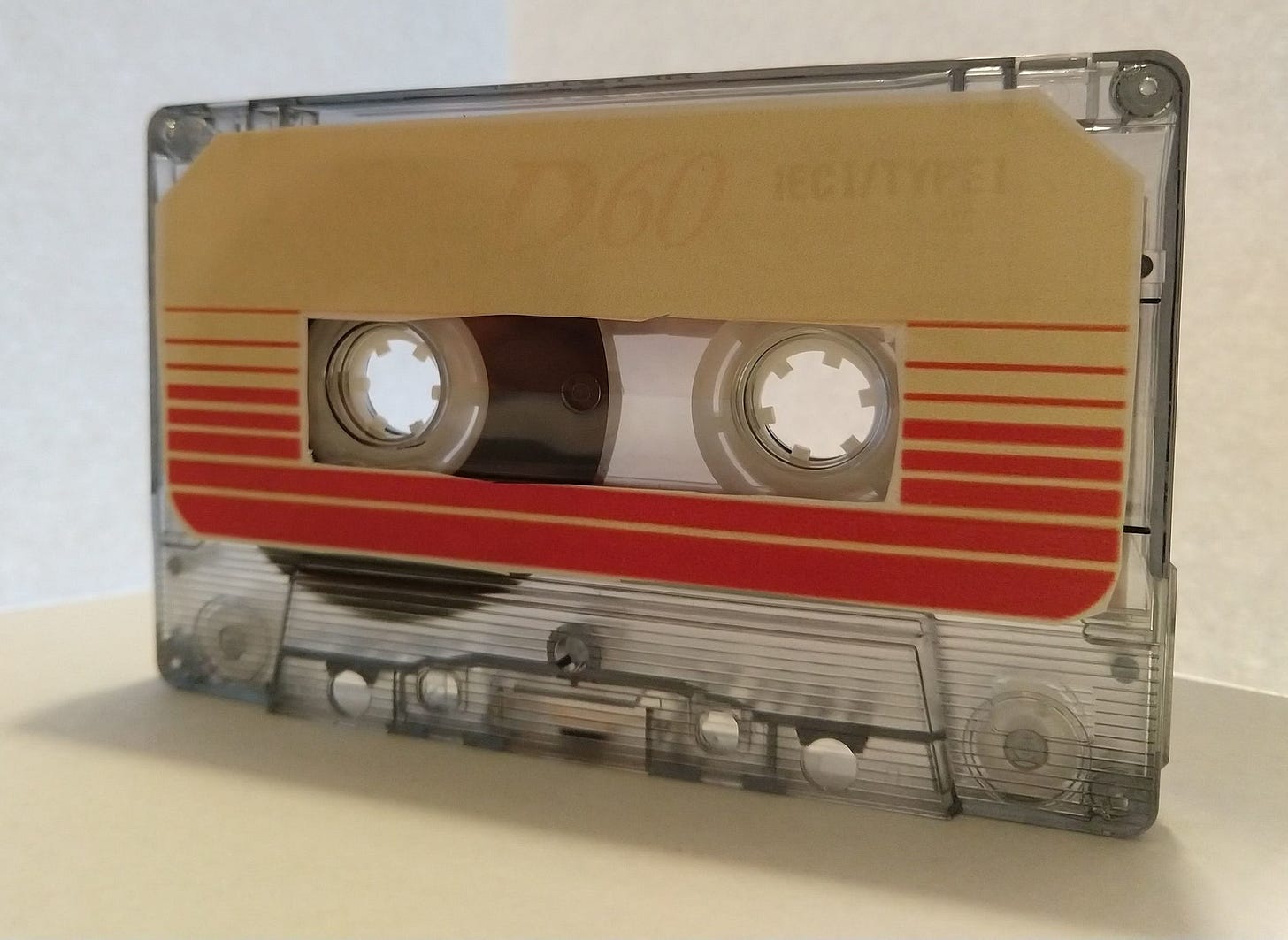Most of the music I listen to is digital. Like most people I know, I subscribe to a streaming service and have access to millions upon millions of songs. It’s an incredible thing. I have discovered new music, rediscovered beloved old favorites, and created playlists for every occasion (mostly running; lots of running playlists).
But the proliferation of digital music, oddly enough, makes the analogue kind that much more valuable. Concerts are suddenly huge money makers—Elton John’s 2018 tour brought in nearly $1 billion. Even though I have a streaming subscription, I was over the moon when this record shop opened on my block! The ease with which I can access digital music elevates my enjoyment of the analogue sort.
In my experience, a lot of Christianity is “digital,” floating in the world of thought, divorced from the real stuff of everyday life. But as much as we might try (and despite Mark Zuckerberg’s best efforts), we can’t live all our life online. Nor do we want to. Likewise, our faith can’t be purely digital. In fact, faith has to be analogue because, in Christ, God Himself became analogue.
Christ became incarnate—he became flesh and dwelt among us. This means that a faithful expression of faith in Christ must be able to account for the body and invite us to worship God with all that we are—heart and soul, body and mind.
exalting the analogue
Back in August, I wrote an article on excarnate Christianity, which is, I think, the predominant practice of faith in the modern world. It’s a stance that makes the body incidental to faith, rather than a key component of both the human person and Christ’s redemption. As more and more of our lives move online, the temptation to excarnate our Christianity is probably only going to grow stronger. ¼ of adults in the US now watch church services online. If our bodies don’t factor into our faith, why take mine to church?
When I first read of this idea of “excarnation,” it helped me understand 1) the Christianity that I came up in, and 2) why I found it profoundly lacking. I knew what I was supposed to think about God and the world and myself. But I wasn’t taught how faith in Christ makes any difference in how I shop or work or eat or engage in the rest of everyday human life. Most Christians I knew lived the same average existence as their non-believing neighbors.
The first Christians didn’t turn the world upside down because they thought differently than everyone else. They turned the world upside down because their whole lives testified radically to Christ’s kingdom. And that kingdom makes a claim, not only on our minds, but on the entirety of our lives. (See: The Sermon on the Mount.) By taking our flesh in order to redeem us, Jesus exalted the analogue.
cosmic vision within embodied existence
Last week’s post was a longer quote from Alexander Schmemann’s book, For the Life of the World. That book is very near and dear to my heart; it has had a profound impact on the way I think about the world, and the nature of the Christian life. If you haven’t read it before, I can’t recommend it highly enough. (Just please don’t become Orthodox. Feel free to become Anglican though!) ;-)
As I’ve wrestled in my own life with what it means to live as a faithful Christian in the 21st century West, Schmemann has been invaluable to me. His cosmic vision of embodied faith has been a lifeline, teaching me to be both fully human (in all my analogue glory) and fully Christian. I’m not sure if Schmemann ever went looking for a good LP in a thrift store, but he helps us understand how the cosmic and the analogue (embodied) nature of the Christian faith come together in Christ.
An important premise of this newsletter is that all of life in this world is (at least potentially) sacramental. That conviction stems partly from the way Schmemann traces the meaning of the historic Christian liturgy to the biblical teaching that we are a “kingdom of priests” (1 Pet. 2:9). He writes,
[W]e were created as celebrants of the sacrament of life, of its transformation into life in God, communion with God. We know that [in Adam’s fall] we have lost this eucharistic life, and finally we know that in Christ, the new Adam, this eucharistic life was restored to man.1
He pictures humankind in the Garden of Eden, created to be priests that off all created things back to God. In offering nature to God in sacramental communion with Him, we sanctify this world and make it eucharistic. This is symbolized in the historic liturgy when the bread and wine—the products of human hands and culture—are offered to God in prayer.
In Adam, we lost that communion with God. But by taking our flesh, dying, rising, and ascending into heaven, Christ has reestablished the connection between humanity and God. The analogue nature of the incarnation makes possible the cosmic reach of the Christian faith. Now we can,
offer the world and ourselves to God. But we do it in Christ and in remembrance of Him... In Him was Life—and this Life of all of us, He gave to God. The Church is all those who have been accepted into the eucharistic life of Christ.2
slow down. submit to the analogue.
We have been accepted into the eucharistic life of Christ. And we participate in that eucharistic life, not through thinking or changing our worldview, but by participating in the sacramental life of the church. We eat Christ’s body. We drink the cup of the new covenant in His blood. And mysteriously, He graciously fills us with His own life through these simple, humble, analogue means.
In our efficiency-obsessed world, we have a hard time slowing down and taking part in anything that doesn’t “scale.” It doesn’t feel worth the effort to do the little things. Show up on Sunday. Receive the bread. Drink the cup. But in these humble things, we participate in the life of Christ Himself.
He became man and lived in this world. He ate and drank, and this means that the world of which he partook, the very food of our world became His body, His life. But His life was totally, absolutely eucharistic—all of it was transformed into communion with God and all of it ascended into heaven.3
Every time Jesus enjoyed a meal, He took something of this world into Himself. But because He was fully Man and fully God, He was reincorporating this world into the divine. In Holy Communion, He offers Himself to us through the things of this world.
[W]hen we receive this bread from His hands, we know that he has taken up all life, filled it with Himself, made it what it was meant to be: communion with God, sacrament of His presence and love.4
A sacramental vision of life in this world begins with the eucharist. Apart from the sacraments, our attempts to be “sacramental” will falter. But as we commune with Christ at His Table, He graciously fills us with more of Himself and continues to make “all things new” through us, taking up all of life in this world into His own indestructible, eternal life.
Alexander Schmemann, For the Life of the World, 34.
Ibid, 35.
Ibid.
Ibid, 43.









